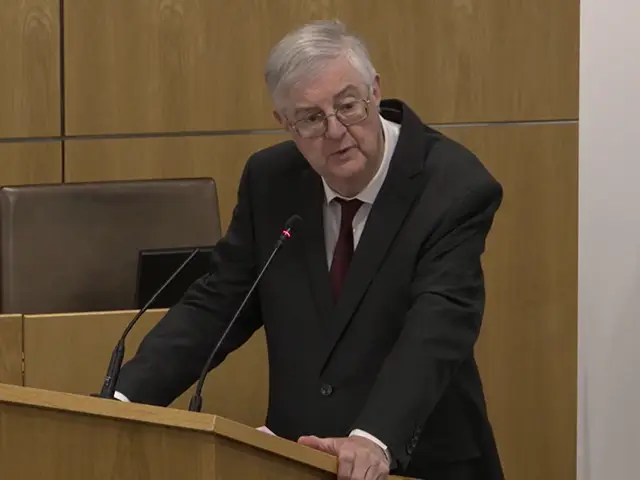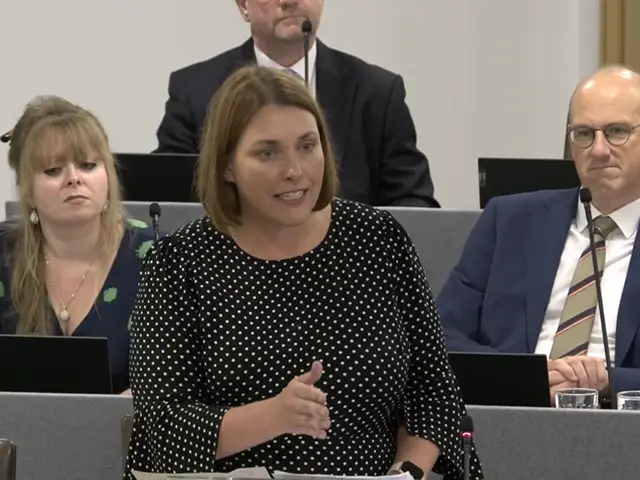Support quality, independent, local journalism…that matters
From just £1 a month you can help fund our work – and use our website without adverts. Become a member today

The Welsh Government has rejected calls for a new law to protect historic place names, arguing goodwill and current initiatives are already working.
Favouring persuasion rather than enforcement, Mark Drakeford unveiled a four-point plan including guidance for councils and a tool for the public to record historic names.
The former First Minister pointed to research showing properties in Wales are at least three times more likely to be renamed from English to Welsh than vice versa.
He told the Senedd his approach was driven by the same anxieties that motivated past campaigns, saying: “The same concern lay behind the research commissioned by this government, research on current trends in relation to changes to place names in Wales.”
Prof Drakeford added that the Welsh Government would commission further research on “topographical” names given to the natural landscape and geographical features.
‘Smorgasbord’
In a statement on September 30, Prof Drakeford acknowledged a passionate campaign for legal protections led by former Plaid Cymru Senedd Member Dai Lloyd.
Dr Lloyd introduced a bill aimed at reversing a trend of historic place names in the Welsh language being lost but his draft law was voted down at the first stage in 2017.
The retired GP said at the time: “The rich smorgasbord of our history is going down the tube and we’re standing idly by, either doing nothing or lamely saying, ‘Duw, let’s have a bit of guidance, is it?’
“No, it is not on. We’re talking about the history of a nation here – pride in the history of that nation – pride that deserves to be enshrined in law.”
Tuesday’s statement highlighted cross-party support for protecting place names but clear differences of opinion remain on whether goodwill was enough without new legislation.
‘Gaining ground’

Tom Giffard, for the Conservatives, supported the commitment to retain Wales’ cultural heritage by promoting Welsh place names. But he stressed the need to strike a balance by respecting the rights of property owners or communities who prefer English names.
The former teaching assistant in a Welsh-medium school also raised practical questions about how public contributions would be verified and how young people would be engaged.
In response, Prof Drakeford said the government respects people’s individual choices and does not want to pursue legislation because “we’re gaining ground without doing that”.
Plaid Cymru’s Heledd Fychan welcomed the work but challenged the refusal to legislate, arguing for legal protection for historic names rather than relying on community campaigns.

Her party colleague Siân Gwenllian said relying on “goodwill alone” was insufficient in the current political climate and legislating is the only way to truly safeguard names.
‘Egregious example’
A different note of caution came from Labour backbencher Lee Waters.
While praising practical steps like the “crowdsourcing” tool, the former minister questioned the headline statistic about the rise in Welsh names.

Mr Waters asked whether this represented a growth in authentic local names or the loss of heritage to “charming folksy names” with no real connection to an area.
He raised the “egregious example” of Llyn Bochlwyd in Eryri being called Lake Australia – warning the ancient Welsh name is at risk of being replaced by an informal nickname.
The debate also touched on practical issues, with Conservative Gareth Davies expressing concerns about inconsistent road signage as he called for more harmony between councils.
In response, Prof Drakeford clarified that the law requires any new street signs to be bilingual, with Welsh appearing first.
Support quality, independent, local journalism…that matters
From just £1 a month you can help fund our work – and use our website without adverts.
Become a member today
